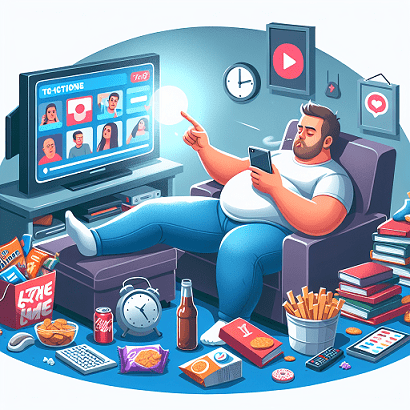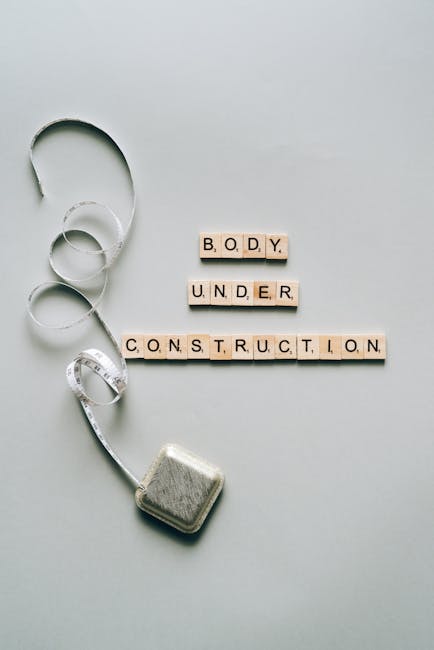
At any time of the year, millions of people around the world are formulating a plan to help them lose weight. Usually, at the beginning of every year, as well as around springtime, more people perk up with an interest in this topic.
Losing weight is an individual and very personal struggle for many people. We all have our own preferences and obstacles that we have to deal with, making the selection of a diet plan something that every person has to consider on their own.
There is no one-size-fits-all best diet for every person on earth. Most diet plans that are discussed online work, at least temporarily or for as long as the person can endure it. However, you want to find something that will worked best for you based on your own health, goals, and other factors.
Below, you will find six different types of diet plans that you can consider for your upcoming weight loss and long term weight management goals. Of course, you may want to consult your doctor to find out which plan they feel would work best for you, but this should help guide you in the options that are available to you.
The Fast Weight Loss Appeal of Low Carb Diets
There are many different types of low carb diet plans that are very popular in the marketplace. From simply counting and lowering your carbs naturally to putting your body into a state of ketosis, you can lose weight quickly on one of these types of diet plans.
Carbs are foods found in things like bread, pasta, sweets and even fruit. When you are on a low carb diet plan, you are eliminating or lessening these types of foods, and increasing the amount of protein and healthy fats that you take in.
The overall concept behind a low carb diet is that your body will begin to use the fat that you have stored in your body rather than the carbohydrates that you are taking in. the fat stores are broken down into ketones, which the body then uses as energy.
There are many different names for these low carb diets. For example, the ketogenic diet is one of the most severe forms that you can follow. You can also follow a simple low carb diet plan such as the paleo diet, the carnivore diet, or other popular plans like the South Beach or Dukan diet.
Why Many Are Choosing Unprocessed Food Diets
Overeating processed foods is one bad habit that causes weight gain for many individuals. Processed foods are things like prepackaged sweets, chips, bread, and more.
These foods are typically low in the nutrients that your body needs, and high in sugar and salt. They taste good because of the flavoring and preservatives that are added to make you crave them, but they are one of the biggest contributors to weight gain when you consume them in excess.
It’s okay to have some processed foods in moderation, but many people like to go on a diet plan that specifically promotes foods that are not processed. For example, you can choose a diet plan like the Mediterranean Diet, Whole 30, or a simple raw food diet to help you stick to unprocessed foods that are healthier.
How Intermittent Fasting Diets Help People With Cravings Lose Weight
Intermittent fasting is a method of dieting that involves basing your eating patterns on time blocks. There are different types of intermittent fasting plans, but they all center around the idea that you will be eating between a specific window of time.
The most popular intermittent fasting plans are the alternate day fasting method, where you simply eat every other day, the 16:8 method, where you eat within an 8 hour window, and fast for 16 hours, and the 5:2 fasting plan, which requires you to eat normally for five days but restrict your food intake to 500 calories for the other two days of the week in a consecutive manner.
Some people find intermittent fasting easier than trying to simply eliminate certain foods from their meal plans. Some studies show that this form of eating helps people reduce their cravings because their body is releasing hormones that counteract cravings during those fasting periods.
Consider a Common Sense Calorie Deficit Diet
One common sense plan that is rising in popularity is a simple calorie deficit diet. Each person will calculate the number of calories that their body needs to maintain their current weight, and then reduce their caloric intake so that they begin to lose weight.
As you lose weight, your caloric intake will lower, because it will require fewer calories in order to help you maintain your weight. You can also base your caloric intake on you are activity level, so someone who is very active and going to the gym would need more calories than someone who is sedentary.
When you are adhering to a calorie deficit diet, not only will you begin to lose weight slowly and safely, but you will notice other increased health benefits as well. This may include an increase in energy levels because you are not weighed down and feeling sluggish by additional food intake.
You will also possibly notice an improvement in your blood pressure numbers and in your blood sugar numbers as well. This can assist you in reducing the possibility of heart disease, stroke, or diabetes.
There are online calculators that you can use to determine what your daily calorie needs are. So if it calculates that you need 2,000 calories per day, you might reduce your consumption to 1,500 calories so that you can lose a suitable amount of weight per week.
Plant-Based Diets Are Convenient and Tastier Than Ever
There are two different types of plant based diets that can help you lose weight. While many people consider pescatarian diets or flexitarian diets to be plant based, they do involve eating animals, so they are not necessarily plant based.
Vegan and vegetarian diet plans are both full plant based meal options that can help you lose weight. You will be eating whole foods such as vegetables, fruits, grains, nuts, and seeds.
if you are a vegan, you will be eliminating things like eggs and dairy, because although they do not cause the death of an animal, they are using animal byproducts. As a vegetarian, you can utilize these things to help you maintain a plant based diet.
Plant based diets are often lower in calories than other diets. But you have to be careful that you are not eating non animal products and assuming you are taking in a low level of calories.
For example, you could eat a package of cookies, a bag of chips, a gallon of milk, and a cart of ice cream and technically be considered a plant based diet, even though you are consuming a high level of calories.
If you do it correctly, leveraging the Whole Foods like vegetables, fruits, nuts, etc., you will find that you are increasing the rich nutrients and antioxidants that you are consuming, which can give you other health benefits and not only help you lose weight, but make you feel great, too.
For Long-Term Success, a Mindful Eating Diet Might Be the Best Option
If you are tired of dieting, and you just want to be normal for once with your food, you might want to try a mindful eating diet. This is not even necessarily a diet per se, but instead a way of living.
In order to be mindful with your eating, you first have to slow down. you want to be present and aware of your food as well as your feelings as you are eating so that you are not quickly shoveling food in your mouth until you are feeling full.
Being mindful, you will put your fork down between each bite, listen to your hunger cues to see when you are satisfied with enough food, and you will eliminate all distractions such as the television while you are eating.
Mindful eating provides you with a better experience because you are focused on the flavor, the scent, and the texture of the food in front of you so that you can maximize your enjoyment of it.
Choosing a diet that will help you lose weight, without driving you insane from the pressure that you feel being on it, can sometimes be a trial and error process. Don’t beat yourself up if you attempt one type of diet plan, only to find that it doesn’t quite suit you.













